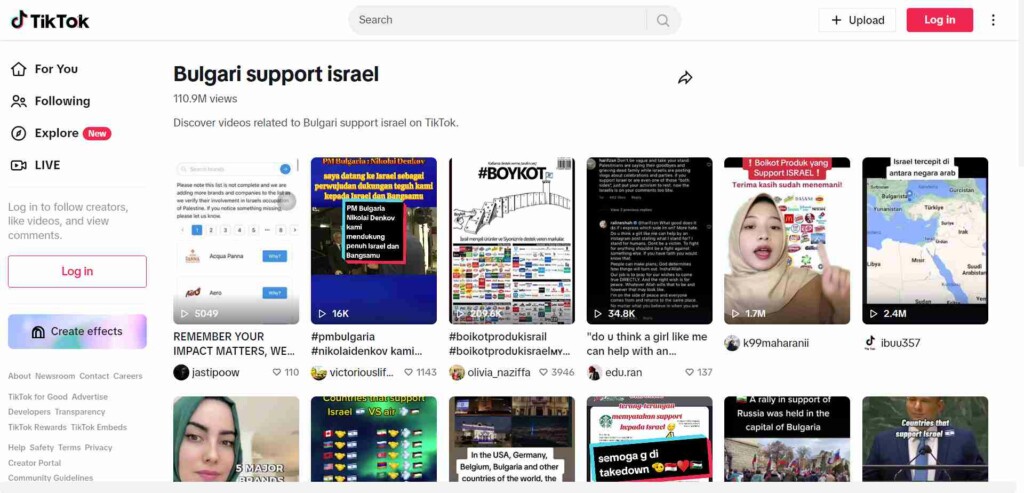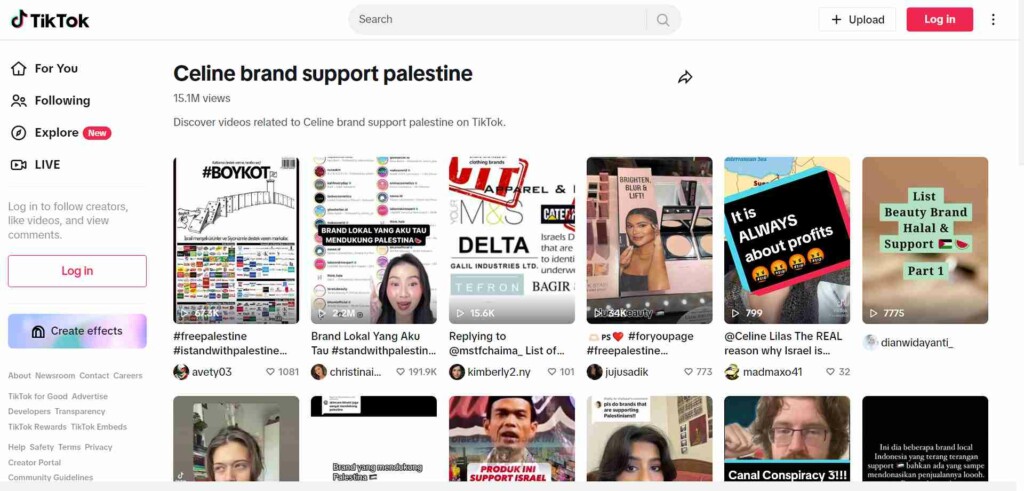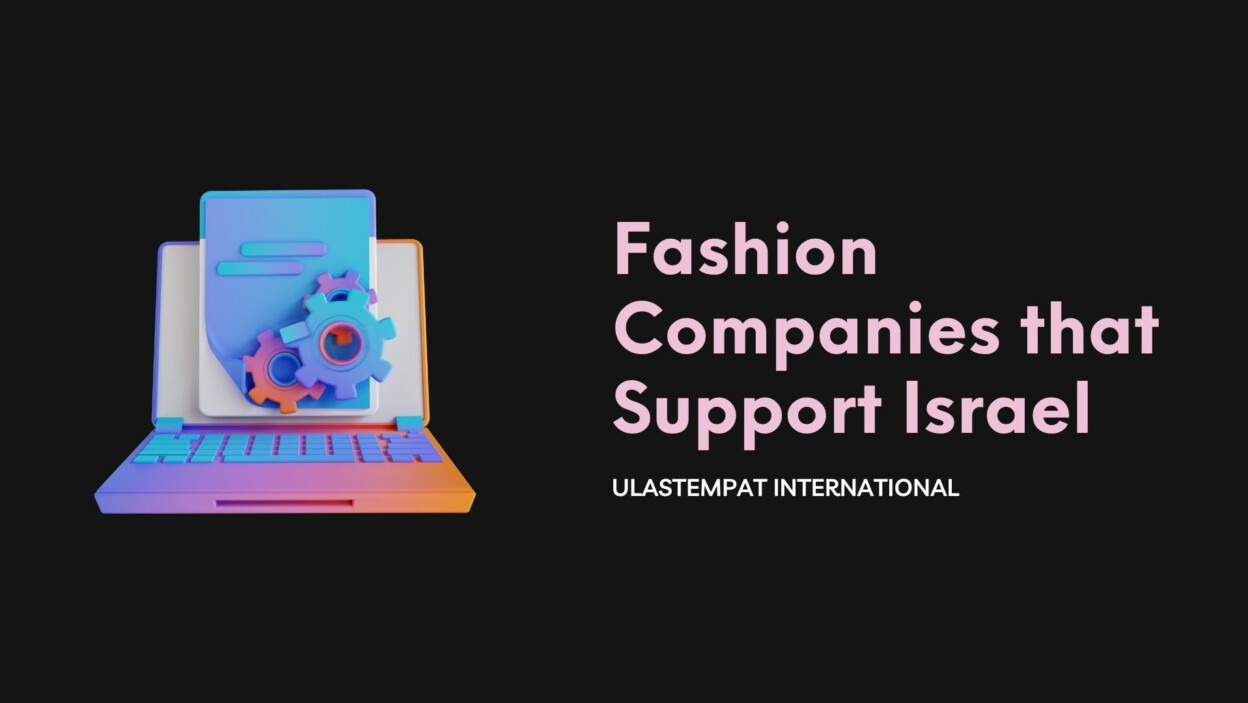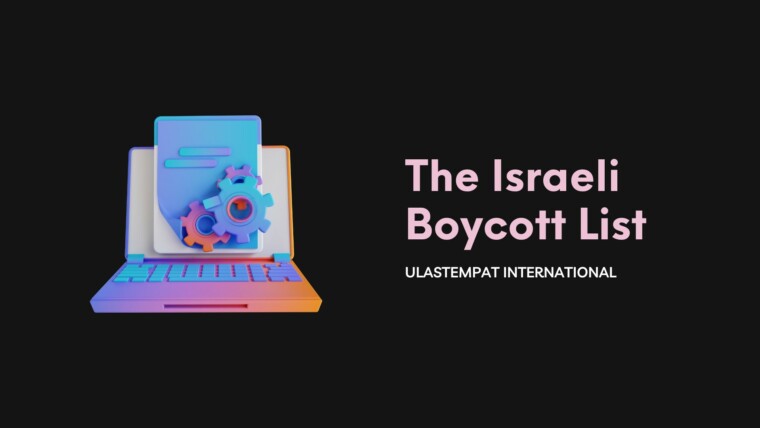Corporations’ affiliations with entities involved in certain geopolitical contexts often draw significant attention. The interweaving of esteemed fashion and beauty brands with companies supportive of or investing in Israeli operations in occupied territories has ignited global discourse.
Advocates and consumers express their concerns by opting out of purchasing, endorsing, or associating with products and brands linked to these contentious relationships. The details that follow aim to shed light on brands tied to these affiliations, emphasizing the actions recommended by those advocating for ethical consumer choices.
1. American Eagle

American Eagle’s explicit backing for Israel, notably displayed on their Times Square billboard, aligns the brand with the polarizing geopolitical landscape. Choosing to abstain from their products or employment opportunities might be considered as a form of action to express dissent.
2. Bulgari / Bvlgari

Bulgari’s ownership under LVMH and the substantial investments of Bernard Arnault in Israeli companies underscore the brand’s geopolitical connections. Opting to avoid Bulgari products or associations could signal a stance on these affiliations.
3. Celine

As part of LVMH and given Bernard Arnault’s significant investments in Israeli companies, Celine’s position in the geopolitical spectrum prompts consumers to reflect on their support of the brand and related employment opportunities.
4. Chanel

Alain Wertheimer’s stance on the Israel-Gaza conflict, alongside the associated financial commitments, reflects the geopolitical positioning of Chanel. Choosing not to engage with Chanel’s products or endorse its job opportunities can express a stance on these affiliations.
5. Diesel Frangrances

L’Oreal’s connection with Diesel Frangrances and its alignment with Israel despite past disputes places the brand within a geopolitical context. Consumers might opt not to support this brand to signify their stance.
See Also: Finance Companies and Their Israel Connections
6. Dior / Christian Dior
Bernard Arnault’s substantial investments in Israeli companies, coupled with Dior’s ownership by LVMH, situates the brand within the geopolitical spectrum. This context may influence consumer choices regarding Dior products and related job opportunities.
7. DKNY
The link between DKNY and LVMH, and Bernard Arnault’s investments in Israeli companies, provides a geopolitical background for consumers to consider when engaging with the brand or its job opportunities.
8. Fendi
Fendi, owned by LVMH, stands alongside Bernard Arnault’s notable investments in Israeli companies. This geopolitical association might influence consumer decisions to avoid supporting or seeking employment within the brand.
9. Fenty Beauty by Rihanna
LVMH’s substantial investments in Israeli companies and Fenty’s partial ownership under this conglomerate position the brand in the geopolitical sphere. Individuals might choose not to engage with Fenty Beauty products or related job opportunities aligned with it.
10. Giorgio Armani Beauty
Armani’s collaboration with L’Oreal, despite past geopolitical concerns, places the brand within certain geopolitical alliances. This context might influence consumer choices regarding their support for the brand or opportunities for employment.
11. Givenchy
As part of LVMH under Bernard Arnault’s ownership, Givenchy’s significant investments in Israeli companies place the brand within a geopolitical landscape. Choosing to abstain from purchasing Givenchy products or engaging with the brand and its parent company could reflect a stance on these affiliations.
12. Hublot
Tied to LVMH and Bernard Arnault’s investments in Israeli companies, Hublot operates within this geopolitical context. Opting not to buy or sell Hublot products or partake in employment within the brand or its parent company may signify a position on these affiliations.
13. Kenzo
Under LVMH and owned by Bernard Arnault, Kenzo’s connections to substantial investments in Israeli companies form a geopolitical backdrop. Deciding not to buy or sell Kenzo products or take part in its employment might reflect a stance on these affiliations.
14. Loewe
With LVMH as its parent company and significant investments by Bernard Arnault in Israeli companies, Loewe’s geopolitical context could influence consumer decisions. Refraining from the purchase or sale of Loewe products or job opportunities aligned with the brand or LVMH could signify a stance on these geopolitical affiliations.
15. Louis Vuitton
Belonging to LVMH, Louis Vuitton is linked with substantial investments in Israeli companies by its owner, Bernard Arnault. Consumers choosing to refrain from buying or selling Louis Vuitton products or engaging in employment related to the brand and its parent company might reflect a stance on these affiliations.
See Also: Healthcare Companies that Tied to Supporting Israel
16. Maison Francis Kurkdjian
As part of LVMH and with Bernard Arnault’s significant investments in Israeli companies, Maison Francis Kurkdjian exists within this geopolitical landscape. Abstaining from the purchase or sale of its products or employment within the brand or its parent company might reflect a stance on such affiliations.
17. Maison Margiela Fragrances
L’Oreal’s partnership with Maison Margiela Fragrances, amidst the company’s association with Israel and its apologies following previous disputes, frames this brand within a geopolitical context. Choosing not to purchase or sell these products or engage in employment associated with L’Oreal signifies a stance on these geopolitical affiliations.
18. Marc Jacobs
Under LVMH and with the considerable investments by Bernard Arnault in Israeli companies, Marc Jacobs is situated within this geopolitical context. Opting not to buy or sell Marc Jacobs products or engage in employment opportunities related to the brand or its parent company might signify a stance on these geopolitical affiliations.
19. Mugler Beauty
Aligned with L’Oreal and its historical disputes involving Israel, Mugler Beauty stands within this geopolitical context. Individuals might choose not to purchase or sell these products or pursue employment with L’Oreal to reflect a stance on these affiliations.
20. Prada Beauty
L’Oreal’s partnership with Prada Beauty following disputes with the Arab League places the brand within a geopolitical context. Refraining from buying or selling these products or engaging in employment with L’Oreal signifies a stance on these geopolitical affiliations.
21. Puma
The sportswear brand sponsors athletes and teams across various sports, but its main sponsorship of the Israel Football Association has prompted concerns. A boycott stance has been proposed, urging individuals to avoid buying Puma products until the brand discontinues its sponsorship of the IFA and Israeli teams in illegal settlements. Refraining from working for Puma has been suggested.
22. Ralph Lauren Frangrances
Part of L’Oreal, Ralph Lauren Frangrances became entangled in geopolitical disputes after their cooperation with a pro-Israel figure. Individuals are encouraged to avoid purchasing or selling these fragrances and to refrain from working for L’Oreal Groupe due to their engagements in Occupied Palestine.
23. Skechers
Due to the public pro-Israel stance of the company’s president, Michael S Greenberg, Skechers has faced controversy. To show dissent, individuals have been advised against buying or selling Skechers products and suggested not to work for the Skechers Groupe due to these associations.
24. Skims
Skims, established by Kim Kardashian, received attention due to her comments about specific operations but not Israel’s actions. The call to boycott Skims products and avoid selling them has been proposed, along with the suggestion to refrain from working for the brand.
25. STELLA by Stella McCartney
As part of Bernard Arnault’s LVMH and its investments in Israeli companies, the brand’s association raises geopolitical concerns. To address these, consumers are encouraged to avoid buying or selling STELLA by Stella McCartney products and advised not to engage in employment with the brand or its parent company, LVMH.
26. TAG Heuer
Part of LVMH under Bernard Arnault, TAG Heuer’s connections to substantial investments in Israeli companies align it within this geopolitical landscape. The recommendation has been made to refrain from buying or selling TAG Heuer products and to avoid working for TAG Heuer or LVMH due to these geopolitical connections.
27. Ted Baker
Ted Baker, a UK-based clothing retailer, partnered with Delta Galil, which raised concerns regarding ethical alignment. The call to action suggests avoiding the purchase or sale of Ted Baker products unless they discontinue their partnership with Delta Galil or any other Israeli manufacturers. It also advises against seeking employment with the brand.
28. Tiffany & Co.
Owned by Bernard Arnault’s LVMH, Tiffany & Co. falls under the banner of extensive investments in Israeli companies. To express disapproval of such associations, individuals are encouraged to avoid purchasing or selling Tiffany & Co. products and advised not to work for the brand or LVMH.
29. Valentino Beauty
As part of L’Oreal’s extensive involvement with Israel, Valentino Beauty was implicated in controversies arising from this partnership. To reflect a stance against such associations, refraining from purchasing or selling Valentino Beauty products and avoiding employment with L’Oreal Groupe has been recommended.
30. Viktor & Rolf Beauty
Partnered with L’Oreal, Viktor & Rolf Beauty found itself amid controversies due to L’Oreal’s alignment with Israel. To express dissent, consumers and retailers are encouraged to avoid buying or selling Viktor & Rolf Beauty products and to refrain from working for L’Oreal Groupe.
31. Yves Saint Laurent Beauty / YSL Beauty
Part of the L’Oreal and Israel controversy, YSL Beauty came under scrutiny due to its association with the conglomerate. In response, the suggested course of action is to abstain from buying or selling YSL Beauty products and to avoid employment with L’Oreal Groupe due to its affiliations with Israel.
Consumer choices regarding the brands they purchase, sell, or associate with play a significant role in reflecting ethical standards. As seen in the breakdown of these associations, the decision to avoid brands affiliated with entities investing or supporting Israeli operations emphasizes the public’s stand for ethical, socially responsible business practices.
The call for consumer awareness and conscientious action remains pivotal in the ongoing discourse surrounding geopolitical affiliations of major global brands.



Does Red Bull Support Israel? Decoding the Unraveled Connection
Fast Food Chains Aligned with Israel Support
Chupa Chups’s Support for Israel: Examining the Details
A&W Stand on Israel-Palestine
Does These Firearms Support Israel? Exploring the Unraveled Connection
Does These Tech Brands Support Israel? Decoding the Unraveled Connection
Does These Filmography Support Israel? Understanding the Intricate Ties
Does These Online Business Support Israel? Exploring the Unraveled Connection